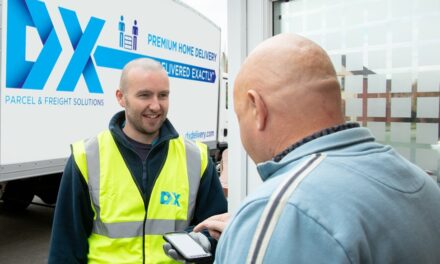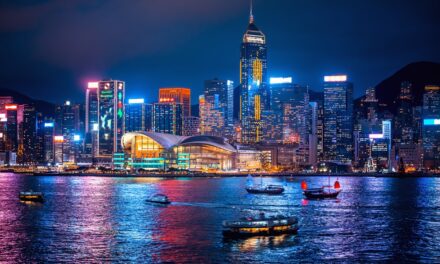
Helping hands
With various organisations’ relief teams heading overseas after the recent tsunami in Samoa, typhoon in Philippines and earthquake in Indonesia, Post&Parcel looks at the importance of companies’ maintaining their social agendas despite the difficult financial climate. As well as striving to make profits and putting huge cost-cutting initiatives in place, many companies are still pushing ahead with their own social agendas such as environmental projects and disaster programmes.
Maybe huge investments into these projects would leave departing employees scratching their heads as they face redundancy, but is good to top organisations aspiring to make the world a healthier place.
TNT’s Peter Bakker, whilst speaking exclusively to our sister publication, Mail & Express Review, highlighted this stance. The question posed was, “Does support for developing countries and sustainable development continue to be high on the agenda for TNT? Has the recession affected the way you are implementing these programmes?” Bakker, in strong mood, responded by saying: “I want to make TNT a success, fight hunger and save the climate, but at the same time we face laying off hundreds if not thousands of postmen and women because there is no longer any work for them. This can lead to conflict. There are staff wondering why we are not giving the €10m we spend each year trying to banish world hunger to our own employees instead. That would, after all, save a lot of jobs. I am open to discuss the matter, but not for too long. You can have a decent dialogue for a time but eventually I say: wait a moment, every five seconds a child dies of hunger and you surely agree with me that no matter how awful it is to lose your job, with good guidance and a good social plan, incidentally, watching your child die of hunger tonight would be a problem of a different order. Wouldn’t it? And as a company we have a responsibility.” This proves to be an admirable stance from one of the industry’s leading players, and one that should be inherited by his peers.
An example of the work being undertaken by Bakker’s company has been in India and Bangladesh. They initiated relief activities immediately after Cyclone Aila struck in May. Reports cite that, as of 27 May (2009 -05-27)[update], Aila killed 330 people and at least 8,208 more were missing, whilst about 1m people were made homeless. TNT India coordinated the medical support for three refugee camps. Immediately after Cyclone Aila hit the shores, TNT India set up a committee to support relief activities. The West Bengal Government requested their help, and Dhananjay Parkhe, CSR director of TNT India, and Abhik Mitra, managing director India, coordinated the team.
A TNT statement said the organisation was “organising the medical support of three refugee camps around Calcutta, giving direct help to around 15,000 people. As the camps are in dire need of medicines and shelter materials, TNT India is purchasing medicines and organising the transportation of the relief materials. TNT has set up a medical relief camp where a team of doctors has already treated hundreds of people infected with skin diseases, malaria and diarrhea.”
Furthermore, it was reported that TNT employees from all over India contributed by donating a day’s or half-day’s salary, as well as collecting clothes and other relief materials to help the cyclone victims. It is fantastic to note that from the very top to the very bottom of TNT’s pay scale, employees supported their employer’s efforts to help the affected people.
The reactionary actions carried out by world’s leading organisations are commendable, and we must not forgot that disaster management programmes are also setup proactively rather than reactively, which is encouraging. A recent news story fell into Post&Parcel’s inbox that detailed Deutsche Post’s efforts. The company, together with its subsidiary DHL, and The United Nations Development Programme (UNDP), has enhanced its services in the area of Disaster Management. In addition to previous and existing disaster response initiatives, both parties launched a new module in the field of disaster preparedness. GARD, which stands for “Get Airports Ready for Disaster”, described in a statement as a “crucial initiative in making worldwide relief efforts more effective.” Deutsche Post went on to say that two pilot projects have just been completed successfully at the Indonesian airports of Makassar and Palu and mark the start of a global rollout for GARD.
In 2009 and 2010, the DHL GARD team plans to conduct on-site training programs and surge capacity assessments at other airports located close to disaster prone areas in Asia and the Americas.
Matt Hemy, vice president security & crisis management at DHL Express Asia Pacific, and head of the GARD program, said: “When the DHL Disaster Response Teams arrive in the aftermath of a natural disaster, we realise that most airports are overwhelmed with the surge in relief aid cargo and other support. Besides managing the disaster, these airports have to cope with the coordination of the massive support from other countries. Hence, delivering aid to the affected communities would be faster and more effective if airports were well-prepared for the sudden onset of natural catastrophes and this is a key driver for our GARD program.”
In addition to their DHL Disaster Response Teams (DRT), the GARD program will help prepare regional airports for large volumes of relief goods.
Deutsche Post noted that Hemy is convinced that the increased knowledge of the airport and its facilities and capacities will be a huge help – and he knows quite well that it can look very different after a natural disaster and all the unpredictable things that happen. “But the chances are higher that we’ll be able to help more efficiently in getting the relief aid to those that need it urgently.”
This structure proved its worth on 1 October when Deutsche Post DHL deployed a DRT to the Philippines. The DRT will temporarily help manage the expected surge in air cargo operations at the Ninoy Aquino International Airport, Manila, thereby reducing bottlenecks and keeping the airport open for additional relief flights. The DRT team consists of 9 trained DHL volunteers, coming from the DRT Asia Pacific headquarters based in Singapore.
No doubt some might say that the industry should be reserving the outlay from social projects for their financial struggles in these uncertain economic times. But, then again, the recession is only a short-term problem, whilst these programmes have been created with the aim of helping those more in need on a long-term basis – it’s refreshing to see many organisations adopting this view.
What do you think of these organisations’ efforts in disaster areas? Is it commendable? Is it right to use financial resources on these types of projects whilst employees face redundancy closer to home? Please comment below.
If you would like to contribute to Post&Parcel, write an article, or suggest a topic for us to explore, please email [email protected]












